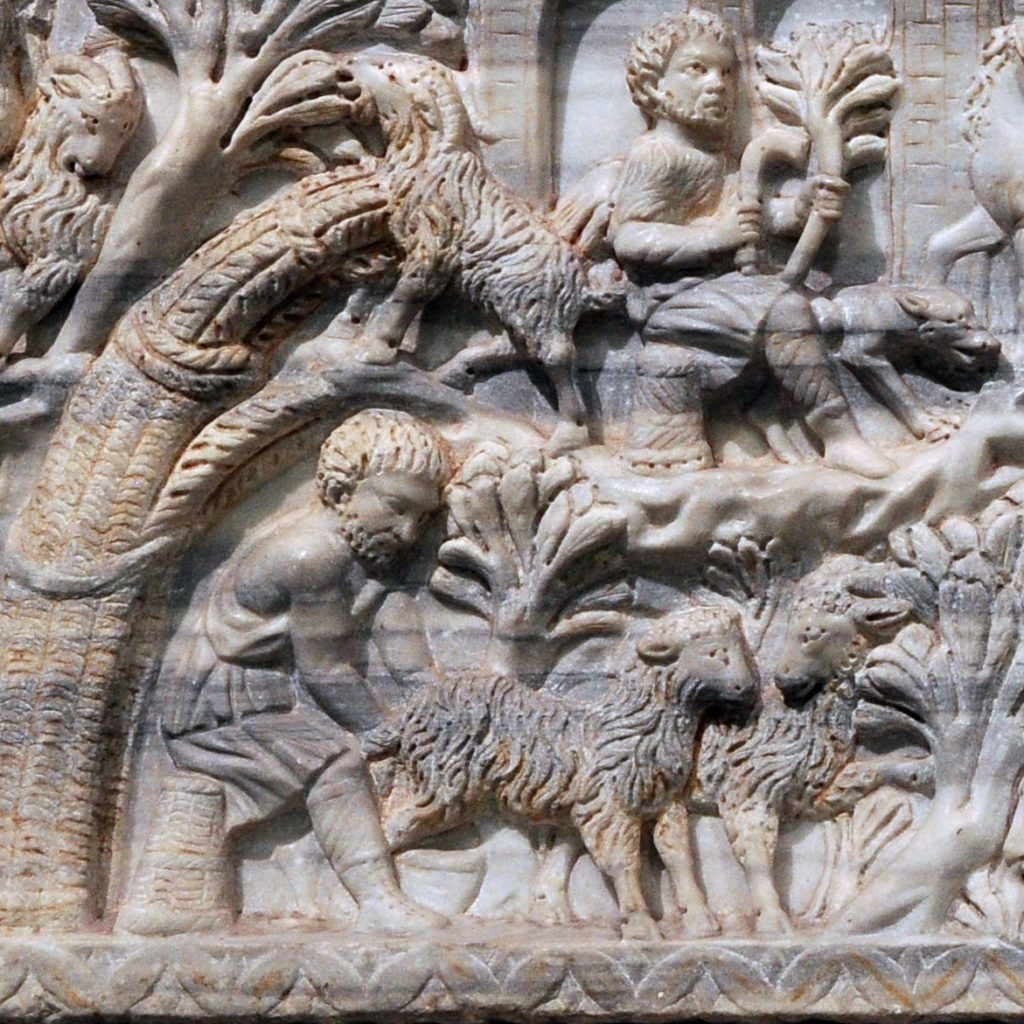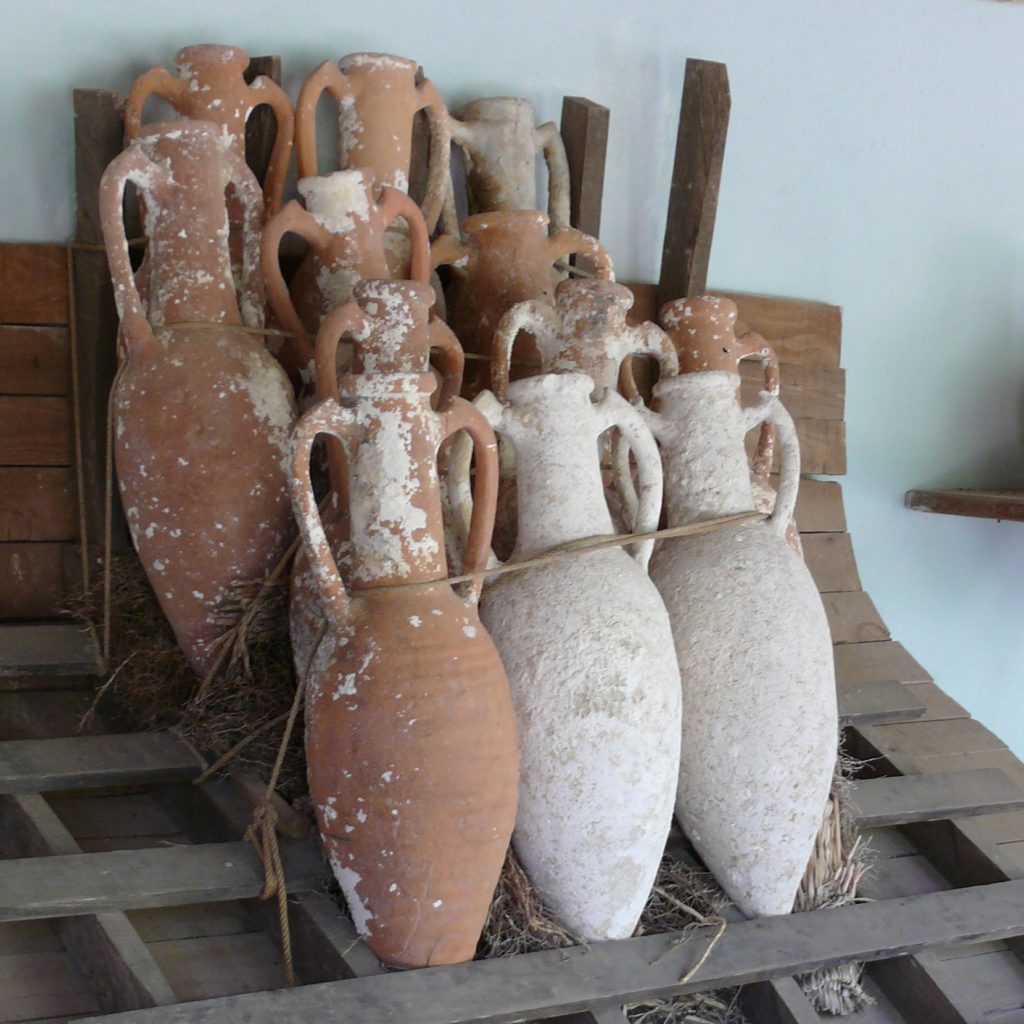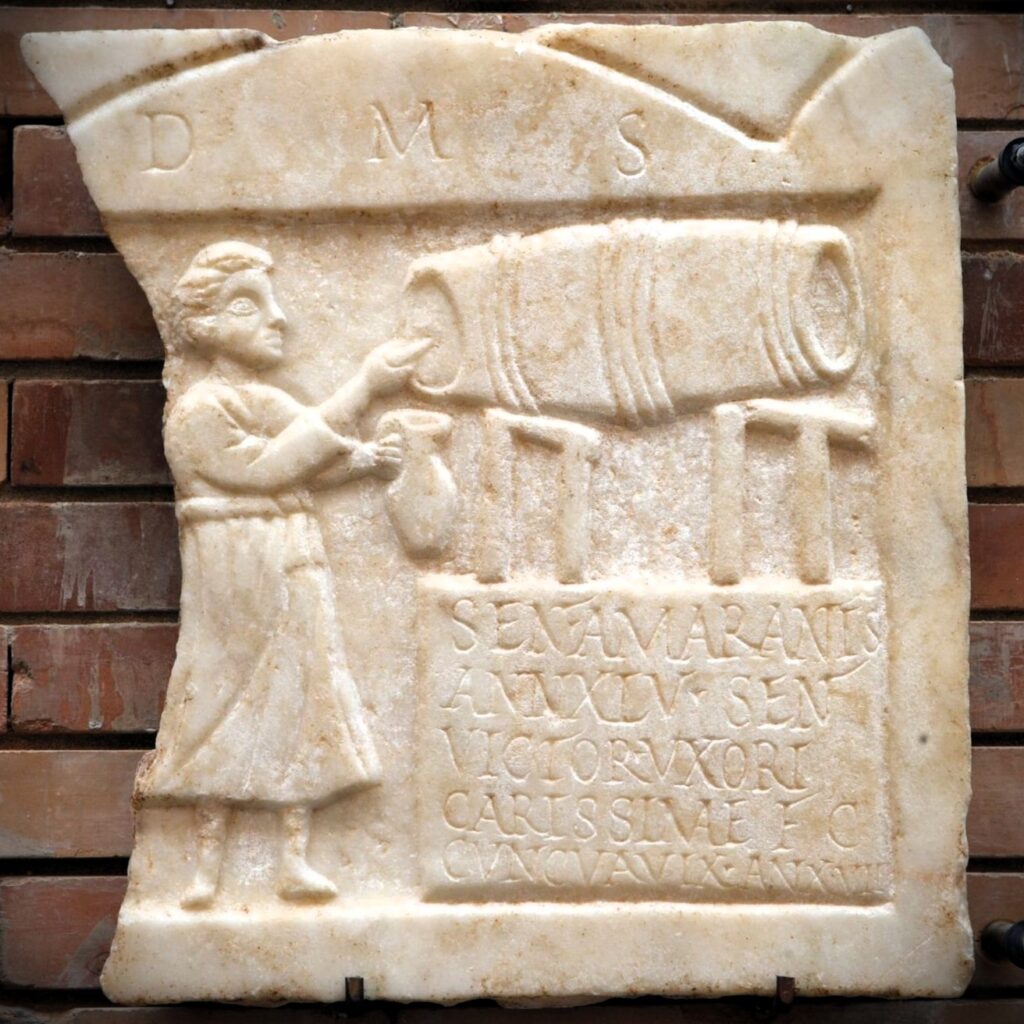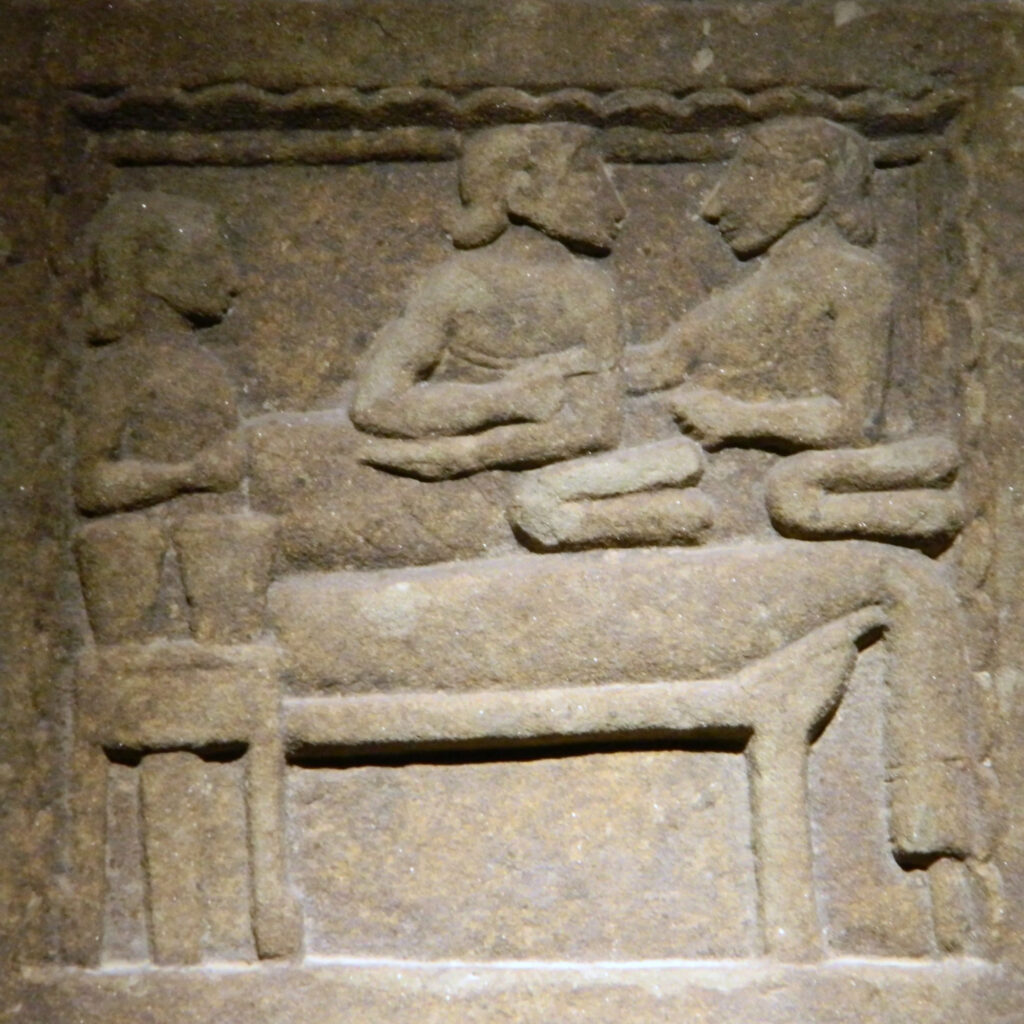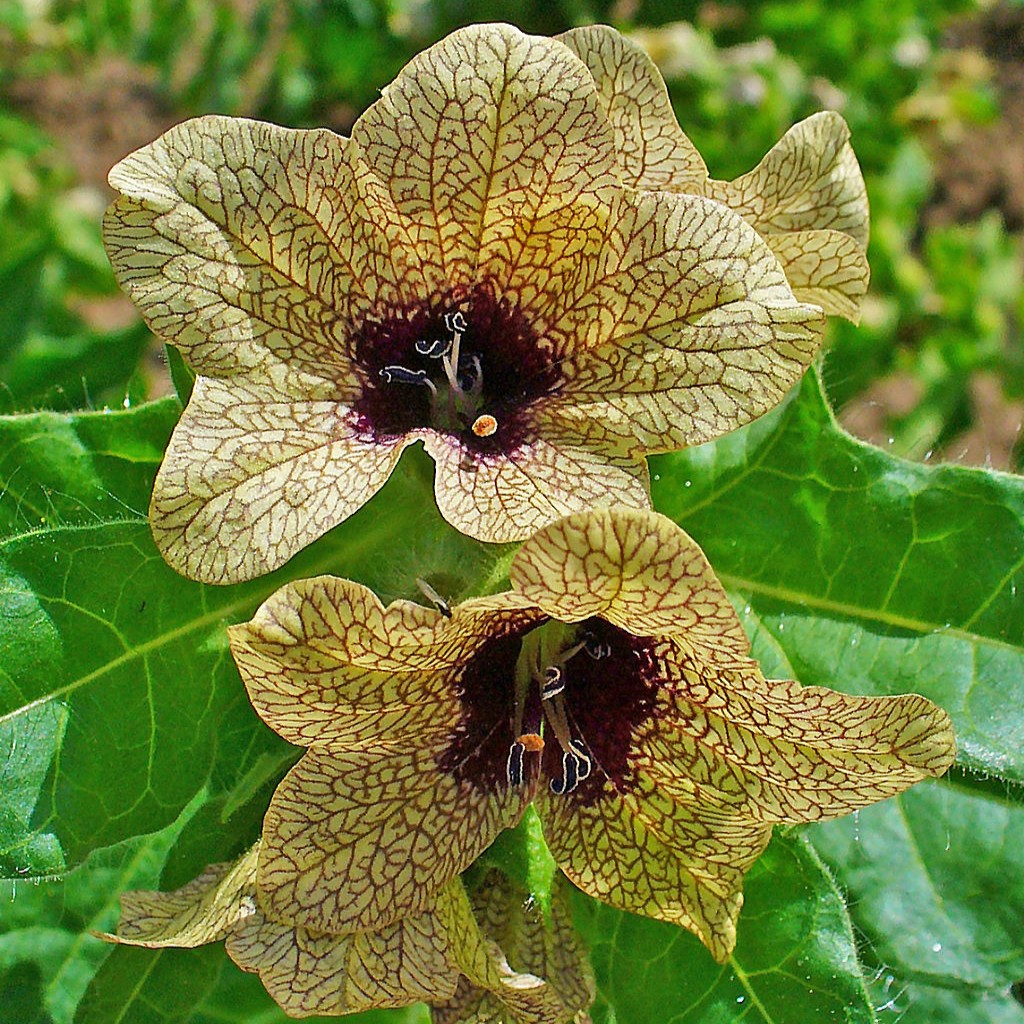Translated from french (please notify us of errors)
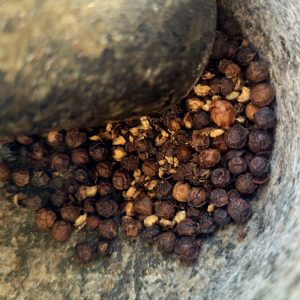 With wine and garum, pepper is the star ingredient in Apicius. The Roman cook used it in all his sauces. He did not hesitate to prescribe it for cooking, then recommend sprinkling it over the dish again before serving. Of the 500 recipes in the De re coquinaria – Apicius’s book – three-quarters include pepper.
With wine and garum, pepper is the star ingredient in Apicius. The Roman cook used it in all his sauces. He did not hesitate to prescribe it for cooking, then recommend sprinkling it over the dish again before serving. Of the 500 recipes in the De re coquinaria – Apicius’s book – three-quarters include pepper.
These small dried and spicy berries were adored by the Romans. Yet they were a luxury product, and therefore very expensive.
In the first century, the naturalist Pliny the Elder noted this success, but was also surprised by it[1]:
“[Long pepper] sells for fifteen denarii per pound; white pepper, seven denarii; black pepper, four denarii. It is astonishing that the use of this substance has gained such favour. Indeed, in the substances we use, it is sometimes sweetness, sometimes appearance that seduces. Pepper has none of what recommends a fruit or berry; it pleases only through its bitterness, a bitterness that one goes to India to fetch. Who first tried it in their food? Or who was the one who was not content with hunger as seasoning? Pepper and ginger grow wild in the lands where they are found, and yet we buy them by weight, like gold or silver.”
The Roman pound was equivalent to 324 grams. And under the reign of Tiberius, a labourer earned 1 denarius per day working from dawn to midday. In short, the worker in question must not have eaten spicy food very often…
What explains this exorbitant price? The spice does not grow in the Italian meadows, but in India. Two species had been cultivated there for millennia. On the south-western coast, black pepper (piper nigrum) which, contrary to its name, can also be white, red or green. Further north, long pepper (piper longum).
It was the latter, spicier variety, that the Romans favoured. Only the former remains on our tables, as piper longum was supplanted by the arrival of various varieties of chilli pepper, native to the American continent.
From India, pepper spread to neighbouring peoples, then gradually along trade routes. It is found in ancient Egypt… notably stuffed into the nostrils of the mummy of Ramesses II (who died in 1213 before our era). Pepper was also known to the Greeks, at least from the 5th century before our era onwards. They used it in medicine for its antiseptic properties, particularly to treat eye conditions… They obviously also used it in cooking. It was nibbled to stimulate thirst. The grains were added to wine to flavour it.
The Greeks were not ignorant of pepper’s Indian origin: if the spice reached them, it necessarily had to pass through the lands of their hereditary Persian enemy. The poet Antiphanes found this amusing and suggested treating any pepper importer in Athens as a spy![2]
With Roman domination over the Mediterranean world, the popularity and trade of pepper and other Indian spices made a prodigious leap.
With Roman domination over the Mediterranean world, the popularity and trade of pepper and other Indian spices made a prodigious leap.
At the beginning of our era, Strabo, a Greek-speaking geographer, wrote that Rome sent 120 ships to India every year to stock up. The ships sailed up the Red Sea, then the cargo passed through Alexandria before reaching Europe. Thus, the taste for spicy berries spread throughout the Roman world, as far as Roman Britain. Naturally, dishonest merchants tried to cheat consumers: “Pepper is adulterated with juniper berries, which wonderfully absorb its pungency,” Pliny explains[3]. “It is also adulterated for weight in several ways,” he adds, without revealing the trick.
A few centuries later, when the Roman world disintegrated, pepper retained its appeal and value. According to an ancient legend, Alaric the Visigoth demanded a fabulous tribute in 410 to lift the siege of Rome: tonnes of gold and silver, silk and precious furs, but also… a large quantity of pepper.
[1] Pliny, Natural History, Book 12, XIV, 28/29: Emitur in libras XV, album VII, nigrum IIII. Usum eius adeo placuisse mirum est; in aliis quippe suavitas cepit, in aliis species invitavit: huic nec pomi nec bacae commendatio est aliqua. sola placere amaritudine, et hanc in Indos peti! Quis ille primus experiri cibis voluit aut cui in appetenda aviditate esurire non fuit satis? Utrumque silvestre gentibus suis est et tamen pondere emitur ut aurum vel argentum.
[2] The words of the poet Antiphanes (4th century before our era) are reported by Athenaeus of Naucratis (2nd century before our era).
[3] Pliny, Natural History, Book 12, XIV, 29: Adulteratur iunipiri bacis mire vim trahentibus; in pondere quidem multis modis.
Other articles in English from the Nunc est bibendum blog
